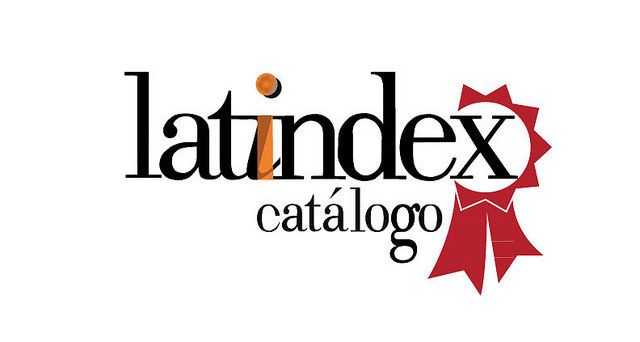Getting Along, Resisting and Adjusting
Negotiations in Couples to Maneuver Through Debts Until Payday
DOI:
https://doi.org/10.29340/en.v4n7.170Keywords:
debt, young adults, financial practices, financialization of everyday lifeAbstract
In a context of rising costs of living and stagnating wages, debt in Chilean households has soared to unprecedented levels. In this context, this article explores the economic arrangements made by young adult couples in a context of high economic pressure caused by debt. We understand that couples build, discuss and negotiate the acquisition, uses and strategies of debt payments. For this purpose, from the analysis of 34 semi-structured interviews to young couples in debt, we explore three types of negotiations: (i) those which attempt to match previous inheritances or financial knowledge; (ii) the financial resistance strategies that couples assume to support themselves economically; (iii) adjustments to future projects that couples make based on the payment projections of the commitments they have assumed.
Downloads
References
Antoniades, Andreas (2018). “Gazing into the Abyss of Indebted Society: The Social Power of Money and Debt”. Political Studies Review, vol. 16, núm. 4, pp. 279-288. https://doi.org/10.1177/1478929918757135 DOI: https://doi.org/10.1177/1478929918757135
Andrade, Camila (2020). “¿Cuánto más soporta el Pilar Solidario? La experiencia de la vejez en el Chile actual”, en Kathya Araujo (dir.), Hilos tensados, para leer el octubre chileno. Santiago de Chile: Colección idea y Universidad de Santiago de Chile, pp. 217-241.
Araujo, Kathya (2020). “Desmesuras, desencantos, irritaciones y desapegos”, en Kathya Araujo (dir.), Hilos tensados, para leer el octubre chileno. Santiago de Chile: Colección idea y Universidad de Santiago de Chile, pp. 15-36.
Banco Central de Chile (2018). Encuesta financiera de hogares 2017. Santiago de Chile: Banco Central de Chile. Recuperado de https://www.efhweb.cl/, consultado el 26 de febrero de 2021.
Belleau, Hélène y Caroline Henchoz (2008). “Introduction”, en Hélène Belleau y Caroline Henchoz (ed.), L’usage de l’argent dans le couple, pratiques et perceptions des comptes amoureux: perspective internationale. París: L’Harmattan, col. Questions sociologiques, pp.7-29.
— (2017). L’amour et l’argent. Québec: Les éditions du remue-ménage.
Denegri, Marianela et al. (2012). “Escala de actitudes hacia el endeudamiento: validez factorial y perfiles actitudinales en estudiantes universitarios chilenos”. Universitas Psychologica, vol. 11, núm. 2, pp. 497-509. https://doi.org/10.11144/Javeriana.upsy11-2.eaev DOI: https://doi.org/10.11144/Javeriana.upsy11-2.eaev
González López, Felipe (2018). “Crédito, deuda y gubernamentalidad financiera en Chile”. Revista mexicana de sociología, vol. 80 núm. 4, pp. 881-908.
Dienst, Richard (2011). The Bonds of Debt. Londres: Verso.
Han, Clara (2011). “Symptoms of another life: Time, Possibility, and Domestic Relations in Chile’s Credit Economy”. Cultural Anthropology, vol. 26 núm. 1, pp. 7-32. https://doi.org/10.1111/j.1548-1360.2010.01078.x DOI: https://doi.org/10.1111/j.1548-1360.2010.01078.x
Illouz, Eva (2007). Intimidades congeladas. Las emociones en al capitalismo. Buenos Aires y Madrid: Katz. https://doi.org/10.2307/j.ctvndv74r DOI: https://doi.org/10.2307/j.ctvndv74r
James, Deborah (2019). “Owing Everyone: Debt Advice in the uk’s Time of Austerity”. Ethnos. https://doi.org/10.1080/00141844.2019.1687544 DOI: https://doi.org/10.1080/00141844.2019.1687544
Lazzarato, Maurizio (2011). La fabrique de l’homme endetté: essai sur la condition néolibérale. París: Éditions Amsterdam.
Lewin-Epstein, Noah y Moshe Semyonov (2016). “Household Debt in Midlife and Old Age: A Multinational Study.” International Journal of Comparative Sociology, vol. 57, núm. 3, pp. 151-172. https://doi.org/10.1177/0020715216653798 DOI: https://doi.org/10.1177/0020715216653798
Marambio-Tapia, Alejandro (2018). “Crédito y endeudamiento en hogares: Sobre la economía moral del proletariado postindustrial en Chile”, en Felipe González y Aldo Madariaga (ed.), La constitución social, política y moral de la economía chilena. Santiago de Chile: ril Editores, pp. 249-276.
Martuccelli, Danilo (2020). “El largo octubre chileno. Bitácora sociológica”, en Kathya Araujo (dir.), Hilos tensados, Para leer el octubre chileno. Santiago de Chile: Colección idea y Universidad de Santiago de Chile, pp. 369-476.
Montgomerie, Johnna y Daniela Tepe-Belfrage (2016). “A Feminist Moral-Political Economy of Uneven Reform in Austerity Britain: Fostering Financial and Parental Literacy”. Globalizations, vol. 13, núm. 6, pp. 890-905. https://doi.org/10.1080/14747731.2016.1160605 DOI: https://doi.org/10.1080/14747731.2016.1160605
Moulian, Tomás (1997). Chile actual. Anatomía de un mito. Santiago de Chile: Lom Ediciones.
Müller, Lúcia (2014). “Negotiating Debts and Gifts”. Vibrant–Virtual Brazilian Anthropology, vol. 11, núm. 14, pp.191–221. https://doi.org/10.1590/S1809-43412014000100007 DOI: https://doi.org/10.1590/S1809-43412014000100007
Ossandón, José et al. (2017) “Contabilidad en los márgenes. Ecologías financieras entre el big y small data”. Civitas, vol. 17, núm. 1, pp. 1-26. https://doi.org/10.15448/1984-7289.2017.1.25021 DOI: https://doi.org/10.15448/1984-7289.2017.1.25021
Organización Internacional del Trabajo (oit) (2018). El mercado laboral en Chile: Una mirada de mediano plazo. Santiago de Chile: oit Cono Sur.
Pérez-Roa, Lorena y Javier Donoso (2018). “Redes de intercambio y de pago de deudas en parejas jóvenes endeudadas de Santiago de Chile”. Revista Intervención, vol. 8, núm. 2, pp. 23-38. DOI: https://doi.org/10.53689/int.v8i2.59
— y Matías Gómez Contreras (2019). “Deuda, temporalidad y moralidad: proceso de subjetivación de parejas jóvenes profesionales”. Psicoperspectivas, vol. 18, núm. 3. https://doi.org/10.5027/psicoperspectivas-Vol18-Issue3-fulltext-1646 DOI: https://doi.org/10.5027/psicoperspectivas-Vol18-Issue3-fulltext-1646
— (2014). “El peso real de la deuda de estudios: la problemática de los jóvenes deudores del sistema de financiamiento universitario de la corfo pregrado en Santiago de Chile”. Archivos Analíticos de Políticas Educativas, vol. 22, núm. 75. http://dx.doi.org/10.14507/epaa.v22n75.2014 DOI: https://doi.org/10.14507/epaa.v22n75.2014
— (2018). “Debt Management by Young Couples from Santiago, Chile: From family networks towards the financial system”. Economic Sociology. The European electronic newsletter, vol. 20, núm. 1, pp. 27-33.
— (2020). “Consumo, endeudamiento y economía doméstica: una historia en tres tiempos para entender el estallido social”, en Kathya Araujo (dir.), Hilos tensados, Para leer el octubre chileno. Santiago de Chile: Colección idea y Universidad de Santiago de Chile, pp. 83-106.
Pollard, Jane (2013). “Gendering Capital: Financial Crisis, Financialization and (an Agenda for) Economic Geography”. Progress in Human Geography, vol. 37, núm. 3, pp. 403-423. https://doi.org/10.1177/0309132512462270 DOI: https://doi.org/10.1177/0309132512462270
Programa de las Naciones Unidas para el Desarrollo-Chile (pnud-Chile) (2017). Desiguales. Orígenes, cambios y desafíos de la brecha social. Santiago de Chile: Programa de las Naciones Unidas para el Desarrollo.
Rojas, Carolina y Lorena Pérez-Roa (2019). “Estrategias, resistencias y disidencias. Nuevos objetos de intervención e investigación interdisciplinaria”. Revista Persona y Sociedad, vol. 33, núm. 1, pp. 1-10. https://doi.org/10.11565/pys.v33i1.253 DOI: https://doi.org/10.53689/pys.v33i1.253
Ruiz, Carlos y Giorgio Boccardo (2015). Los chilenos bajo el neoliberalismo. Clases y conflicto social. Santiago de Chile: Nodo xxi.
Seefeldt, Kristin S. (2015). “Constant Consumption Smoothing, Limited Investments, and Few Repayments: The Role of Debt in the Financial Lives of Economically Vulnerable Families”. Social Service Review, vol. 89, núm. 2, pp. 263-300. https://doi.org/10.1086/681932 DOI: https://doi.org/10.1086/681932
Silva-Segovia, Jimena y Siu Lay-Lisboa (2017). “The Power of Money in Gender Relations From a Chilean Mining Culture”. Affilia, vol. 32, núm. 3, pp. 344-358. https://doi.org/10.1177/0886109916689784 DOI: https://doi.org/10.1177/0886109916689784
Salazar, Lourdes A. (2014). “Prácticas financieras riesgosas para afrontar la crisis económica en los hogares: entre malabarismos con el dinero y sobreendeudamiento”. Desacatos, núm. 44, pp. 51–66. https://doi.org/10.29340/44.448 DOI: https://doi.org/10.29340/44.448
Stecher, Antonio y Vicente Sisto (2020). “Trabajo y precarización laboral en el Chile neoliberal. Apuntes para comprender el estallido social de octubre 2019”, en Kathya Araujo (dir.), Hilos tensados, Para leer el octubre chileno. Santiago de Chile: Colección idea y Universidad de Santiago de Chile, pp. 16-37.
Valentine, Gill (1999). “Doing Household Research: Interviewing Couples Together and Apart”. Area, vol. 31, núm. 1, pp. 67-74. https://doi.org/10.1111/j.1475-4762.1999.tb00172.x DOI: https://doi.org/10.1111/j.1475-4762.1999.tb00172.x
Villarreal, Magdalena (2008). “Sacando cuentas: prácticas financieras y marcos de calculabilidad en el México rural”. Revista Crítica en Desarrollo, núm. 2, pp. 131-149.
— (2014). “Regimes of Value in Mexican Household Financial Practices”. Current Anthropology, vol. 55, núm. S9, pp. S30-S39. https://doi.org/10.1086/676665 DOI: https://doi.org/10.1086/676665
Zelizer, Viviana (2009). Negociando la intimidad. Buenos Aires: fce.
— (2011). El significado social del dinero. Buenos Aires: fce.
— (2015). Vidas económicas: cómo la cultura da forma a la economía. Madrid: Centro de Investigaciones Sociológicas, Col. Clásicos Contemporáneos.
Žitko, Mislav (2018). “Governmentality verus Moral Economy: notes on the debt crisis”. Innovation: The European Journal of Social Science Research, vol. 31, núm. 1, pp. 68-82. https://doi.org/10.1080/13511610.2018.1429897 DOI: https://doi.org/10.1080/13511610.2018.1429897
Published
Issue
Section
License
Copyright (c) 2021 Encartes

This work is licensed under a Creative Commons Attribution-NonCommercial 4.0 International License.
Aviso de derechos de autor
- Los autores/as conservan los derechos de autor y ceden a la revista el derecho a la primera publicación con el trabajo registrado con la licencia de atribución Creative Commons, que permite a terceros utilizar lo publicado siempre que mencionen la autoría del trabajo y a la primera publicación en esta revista
- Los autores/as pueden realizar otros acuerdos contractuales independientes y adicionales para la distribución no exclusiva de la versión del artículo publicado en esta revista (por ej. Incluirlo en un repositorio institucional o publicarlo en un libro) siempre que indiquen claramente que el trabajo se publicó por primera vez en esta revista.
El material puede ser copiado, distribuido, comunicado, ejecutado públicamente. Se pueden hacer obras derivadas de él. No se puede utilizar para fines comerciales. Se debe reconocer y citar la obra de la forma en que tú especifiques.










